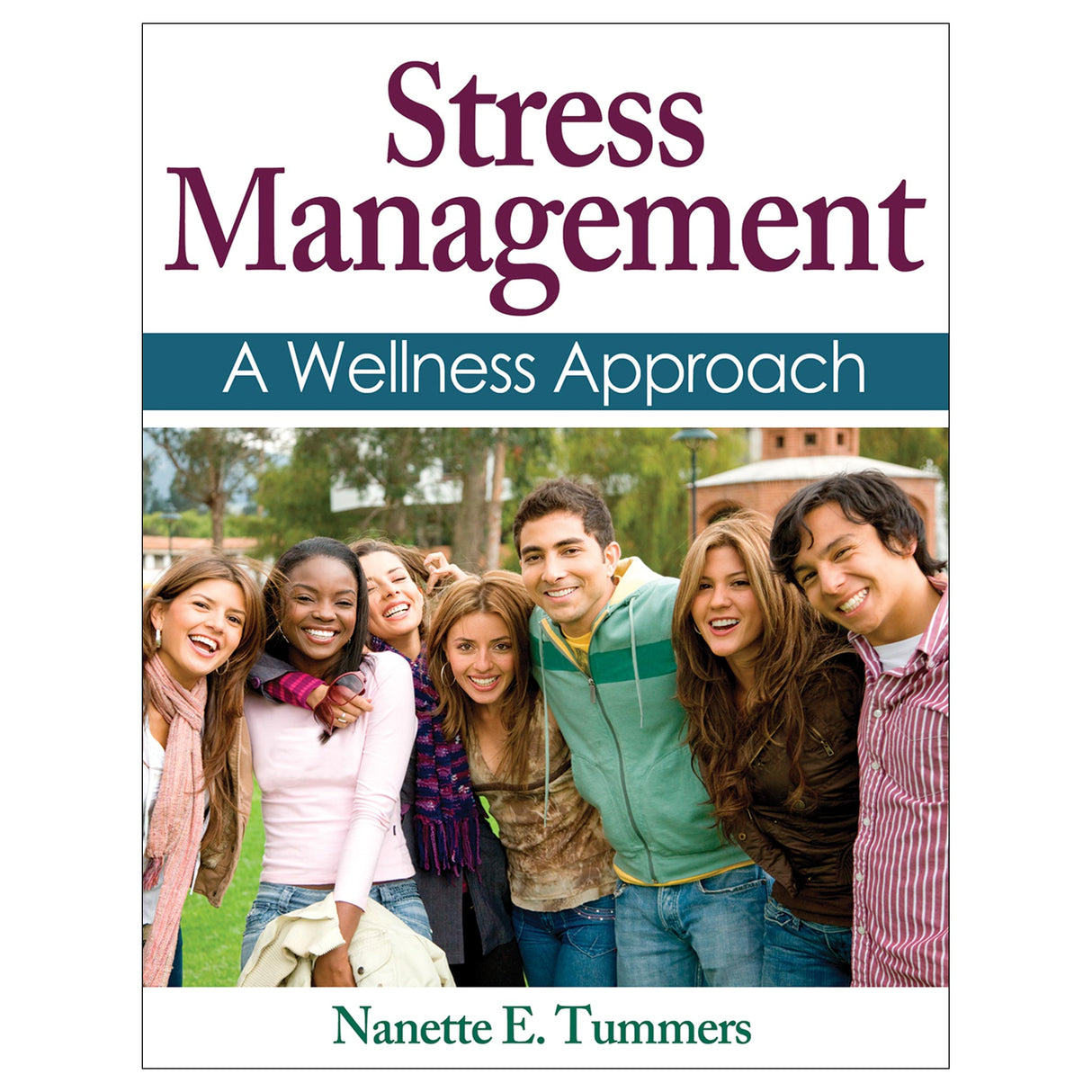Stress Management
A Wellness Approach
Author: Nanette E. Tummers
$29.00 CAD
Stress is an unavoidable part of our everyday lives—and some of it can be good. But a lot of stress is unhealthy, and most of us don’t know how to handle it. Ignoring or mishandling unhealthy stress has all sorts of negative consequences.
That’s why Stress Management: A Wellness Approach is such a valuable resource. This student-friendly guide identifies stressors in six dimensions of life—physical, emotional, intellectual, social, spiritual, and environmental—and presents tested tools that students can use in managing that stress in healthy ways.
This text offers these features:
• Questions that promote critical and reflective thinking in journal entries and discussions as students look to creatively solve problems
• Experiential activities that encourage students to practice stress management techniques
Author Nanette Tummers presents stress management from a holistic viewpoint. She considers not only the symptoms of stress but also the challenges students face in their physical, emotional, intellectual, social, financial, cultural, and spiritual circumstances. Stress Management draws heavily from leading research and best practices from experts in the field of positive psychology, such as Seligman (flourishing), Benson (relaxation response), and Kabat-Zinn (mindfulness).
The material cultivates students’ strengths rather than pointing out their weaknesses. The book includes sidebars describing resources (books and websites) that instructors and students alike can use in further exploration of issues in stress management.
Stress Management helps college students manage stress in today’s fast-paced, ever-changing climate: social, culture, politics, economics, technology, and media. It explores key issues of stress and stress management and offers evidence-based research and practical tools that students can use in coping with changes and stress in healthy and positive ways now and throughout their lives.
Audience
Text for undergraduate stress management courses.
Chapter 1. Introduction to Stress and Stress Management
Wellness Versus Health
Good Stress Versus Not-So-Good Stress
Definitions of Stress
Stress and Life Stage of Becoming an Adult
Understanding the Stress Response: Fight or Flight
What Happens During Stress Reactivity or the Stress Response
The Pathophysiology of Stress
Mind-Body Health: Psychoneuroimmunology
Strengths-Based Approach
Journaling
Summary
Chapter 2. Physical Wellness
Acupuncture and Acupressure
Autogenics
Biofeedback
Breathing
Diet
Tobacco Use
Sexual Health
Massage Therapy and Therapeutic Touch
Physical Activity
Relaxation
Sleep
Qigong and Tai Chi
Yoga
Summary
Chapter 3. Emotional Wellness
Happiness
Laughter
Art Healing
Dealing With Difficult Emotions
Defense Mechanisms
Summary
Chapter 4. Intellectual Wellness
Mindfulness
Meditation
Changing Distorted Thinking, Reframing, and Disputation
Affirmations
Goal Setting and Problem Solving
Time Management = Self Management
Creative Imagination
Summary
Chapter 5. Social Wellness
Intimate Partner Relationships
Interpersonal Communication
Conflict Resolution
Differences Between Men and Women
Animal-Assisted Activity
Summary
Chapter 6. Spiritual Wellness
Stress Management and Spirituality Practices
Altruism
Forgiveness
Gratitude
Additional Spiritual Wellness Practices
Summary
Chapter 7. Environmental Wellness
Technology
Light
Temperature
Air Quality
Color
Ergonomics
Noise
Sound
Natural Surroundings
Summary
How a strength-based approach enable us to be proactive in managing stress
How a strength-based approach enables us to be proactive in managing stress
Sleep; the ultimate stress management tool
Use an anxiety journal to help cope
Instructor guide. Contains chapter overviews, extended learning activities, discussion starters, web links, additional readings, audiovisual aids, and reproducible worksheets.
Test package. Includes 96 essay questions.





